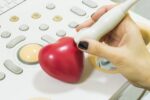How Duchenne Became My Unlikely Companion and Lifelong Partner in Crime
In their debut column, Shalom Lim shares a unique take on disability
Written by |

“You’ve got a friend in me.”
The title of my favorite Disney theme song, by Randy Newman, has never had greater significance for me. The last thing I would’ve expected to be my friend has, in the depths of grief and sorrow, become my strongest ally.
I am a 26-year-old artist and disability advocate from Singapore and a proud Duchenne muscular dystrophy survivor. Why survivor, you may ask? I believe people living with Duchenne are more than passive recipients of healthcare, which the term “patient” seems to insinuate. To me, Duchenne doesn’t just refer to the most common and severe form of muscular dystrophy, but a shared cultural philosophy toward the relentless adversity, excruciating grief, and suffocating isolation unique to those with Duchenne.
As such, I prefer to identify with the all-encompassing and empowering term “survivor,” which tells others that I am not bound by my biological impairments or at the mercy of the medical profession to lead an enriching and fulfilling life. I personally prefer identity-first pronouns, including “disabled person” and “crip artist,” because they affirm the way I see myself when I’m alone.
My late, autistic older brother was born in 1991 and diagnosed with Duchenne at birth. He passed away peacefully from Duchenne-induced heart failure on Dec. 7, 2019, after a two-year battle with a heart condition. He had been an integral part of my development and upbringing, and the grief of losing him caused me to develop major depressive disorder, especially during the COVID-19 pandemic. I have been on antidepressants, with mixed results, for the last few years.
Our two oldest maternal uncles, born in 1951 and 1953, also had Duchenne, but were never officially diagnosed. They succumbed to pneumonia at ages 20 and 16, respectively, due to a lack of proper and inclusive healthcare.
My mom and maternal grandma are both Duchenne carriers and have suffered significant grief from learning about our diagnoses and coping with the caregiving expectations our Asian society places on women who bear disabled children.
My mom, in particular, has been my main source of strength and purpose. She helped me to gradually accept and cope with my disease progression as I went from a young, ambulatory child to a full-time motorized wheelchair user requiring full-time BiPAP ventilation and physical support to survive and function each day.
Lastly, my caregiver of 16 years has been faithful and steadfast in attending to my every need while working for my family. Without my mom and caregiver helping me to brave every major life-threatening illness I’ve faced, I wouldn’t be here to document my experiences.
Throughout my life, Duchenne has been my one and only constant. It’s always there, even when I’m completely alone.
In my late adolescence, I dealt with several bouts of illness that almost took my life, and I felt deserted by many friends and relatives. During these difficult times of isolation, I began to regard my Duchenne as a completely separate entity from the person I was raised to become — one with a distinct soul and mind of my own. At that point, Duchenne became my lifelong companion.
Some in my Asian culture may regard treating your disability as a friend and partner morally wrong or even criminal. In their ableist eyes, it is something to be ashamed of and disdained, to be cured and fixed. Someone from church once told me that my Duchenne wasn’t in accordance with divine will and hence must be healed for me to be of any use to my religious community. But no one, not even a god, can take Duchenne away from me.
My close shaves with death, along with my critical criminology college training, made me realize that I could no longer conform to believing such mainstream bigotry. I spoke valiantly against it, deviating from my community’s expectation that a disabled person of faith should be meek and submissive. My newfound friend made me break the rules, and I’ve never felt better.
So thank you, Duchenne, for being my partner in crime and the unlikeliest of companions.
Note: Muscular Dystrophy News is strictly a news and information website about the disease. It does not provide medical advice, diagnosis, or treatment. This content is not intended to be a substitute for professional medical advice, diagnosis, or treatment. Always seek the advice of your physician or another qualified health provider with any questions you may have regarding a medical condition. Never disregard professional medical advice or delay in seeking it because of something you have read on this website. The opinions expressed in this column are not those of Muscular Dystrophy News or its parent company, Bionews, and are intended to spark discussion about issues pertaining to muscular dystrophy.







Leave a comment
Fill in the required fields to post. Your email address will not be published.